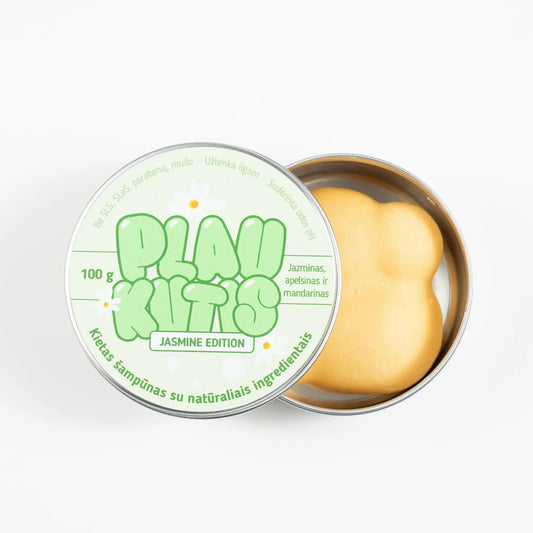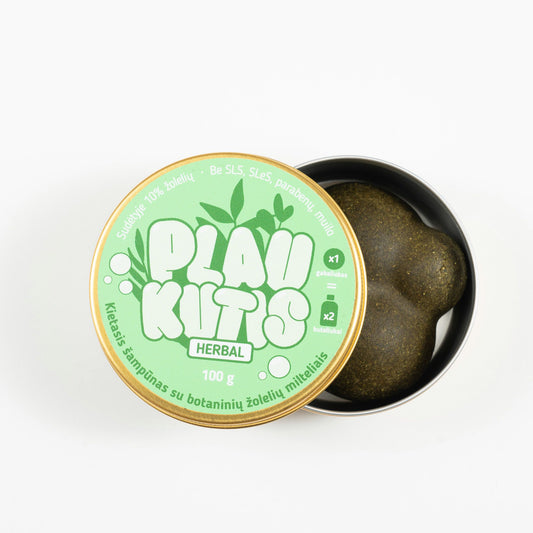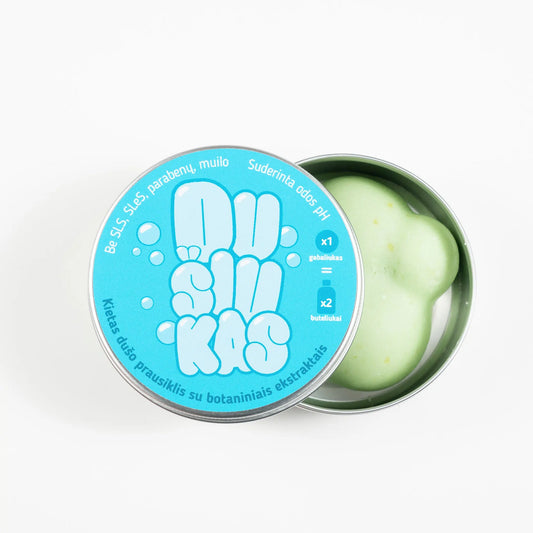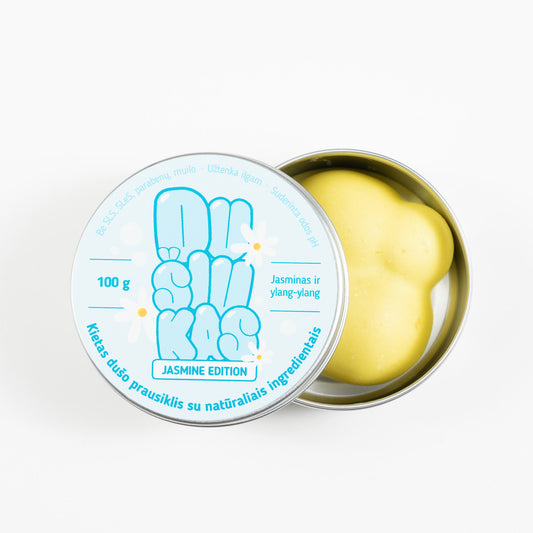Hair health, like skin, changes with the seasons. Each season brings unique environmental factors that affect hair’s moisture, texture, and overall condition. In the summer, you have to contend with intense sunlight, heat, and humidity, while in the winter, you have to contend with dry air, cold winds, and static electricity. If you don’t adapt to these changes, your hair can become brittle, dry, or dull.
Research shows that 64% of women experience increased dryness of their hair during the winter months, and 53% of women experience hair color fading due to UV exposure during the summer months. By adapting your hair care routine to the changing seasons, you can protect your hair from damage and maintain its health all year round.
Summer hair care: sun and heat protection
Summer brings heat, long days at the beach and, unfortunately, more sun and heat exposure to your hair. While many people love the sun, its effects on your hair can be damaging. UV rays, high temperatures and salt water can damage your hair structure, causing dryness, split ends and even premature hair aging.

How sun and heat damage hair
The sun emits UVA and UVB rays, both of which damage the structure of the hair. UVA rays break down the natural pigment in the hair, causing the color to fade. Meanwhile, UVB rays penetrate deeper into the hair and damage keratin, the protein responsible for hair's strength. A study in Photochemistry and Photobiology found that 40 hours of sun exposure can reduce the protein content of hair by 10-20% , leaving it weaker and more prone to breakage.
Heat damage is also a factor. Whether it’s from the sun or styling tools, excessive heat opens the hair cuticle, allowing moisture to evaporate. A 2017 study in the International Journal of Cosmetic Science found that exposing hair to temperatures above 130°C (266°F) for long periods of time can damage the cuticle, reducing hair’s elasticity by 15-30% .

Sunscreen and other hair protection products
To protect against sun damage, hair SPF products can help shield strands from harmful UV rays. These protective sprays or serums with UV filters create a barrier on the surface of the hair, reducing the sun's effects.
- Hats and Scarves : Physical barriers like hats or scarves provide the best protection from UV rays. A study by Dermatological Health Insights found that a wide-brimmed hat can block up to 97% of UV rays, preventing them from reaching the scalp and hair.
- UV protection sprays : Sprays containing benzophenones or octinoxate help filter UV rays and prevent protein breakdown in the hair. Studies show that these ingredients can reduce UV damage to hair by 30-40% if used regularly.
- Oils with SPF : Some natural oils, such as raspberry seed oil , have natural SPF that can protect hair from UV damage by 30-50% .

Moisturizing routine for dry hair
In the summer, sun, chlorine and salt water can make your hair dry. It's important to keep it moisturized.
- Deeply hydrating conditioners : Use conditioners that contain glycerin and hyaluronic acid to help restore lost moisture. Glycerin helps attract moisture from the environment, increasing the moisture level in hair by 20-30% in humid conditions.
- Leave-in conditioners : Leave-in conditioners containing panthenol or aloe vera provide long-lasting moisture and UV protection. Studies show that panthenol improves hair elasticity by up to 10-15% , reducing breakage and frizz caused by the sun.
- Moisturizing masks : Use a moisturizing mask with coconut oil or shea butter once a week. Studies in the Journal of Cosmetic Science have shown that coconut oil reduces hair protein loss by up to 70% , making it very effective in treating sun-damaged hair.
Winter hair care: fighting dryness and static electricity
Winter brings its own challenges. Cold weather, indoor heating, and lack of humidity can strip your hair of its natural moisture, leaving it dry and prone to static. You may also notice that your scalp becomes drier in the winter, leading to irritation or dandruff.
How cold and indoor heating cause dryness and static electricity
During the winter, humidity levels drop, which can dry out your hair and scalp. A study in the International Journal of Trichology found that cold weather can reduce scalp moisture by 25-30% , causing dryness, itchiness, and brittle hair. Additionally, indoor heating further reduces humidity, which can lead to frizz and static.

Static electricity is caused by hair rubbing against winter clothing made of wool, cotton or synthetic materials. These materials cause electrical charges to build up in the hair, causing it to frizz. In dry environments, static electricity can increase by 50-70% , making hair unmanageable.
Deep hydration and winter solutions
In winter, it's essential to focus on hydration to keep your hair smooth and healthy.
- Moisturizing shampoos and conditioners : Use products that contain shea butter , jojoba oil , or ceramides to help lock in moisture. Jojoba oil mimics the scalp's natural oils and has been shown in studies to increase hair's moisture retention by 25-30% after just a few uses.
- Hair oils : Lightweight oils, such as argan oil or sweet almond oil , can seal in moisture and reduce breakage. These oils are rich in essential fatty acids, which can improve hair’s moisture content and elasticity by up to 20% . Apply a few drops to the ends of your hair for maximum benefits.
- Silk or satin pillowcases : Simply switching to silk or satin can significantly reduce friction, reducing static electricity and breakage. Studies show that silk pillowcases reduce hair damage by as much as 43% , compared to cotton alternatives.

Styling tips to reduce static and protect your hair in cold weather
In winter, keeping your hair smooth and static-free requires a slight change in your styling routine.
- Anti-static sprays : Look for sprays that contain silicones or panthenol , which coat the hair and reduce static. According to the Journal of Hair Science , these products can reduce static by 30-50% , especially in dry environments.
- Humidifiers : Increasing the humidity level in your home can help reduce static electricity and protect your hair from excessive dryness. Studies show that keeping your room humidity level around 40-50% can reduce the effects of dryness and static electricity on your hair by 20-30% .
- Protective hairstyles : Wear hairstyles that reduce hair friction, such as braids, buns, or twists. These hairstyles help reduce hair breakage and static buildup.
Tips for seasonal hair care transitions
Transitioning from one season to the next can be tough on your hair if you don't take some precautions. As the weather changes, so should your hair care products and techniques.
Best practices for transitioning from summer to winter hair care
When the weather gets colder, it's essential to add more moisturizing products to protect your hair from the cold and dry air.
- Use heavier conditioners : Switch to conditioners that contain moisturizing ingredients like shea butter and coconut oil , which can increase hair moisture by up to 35% . These heavier formulas help combat the effects of dry air.
- Start using hair oils : Incorporate oils that seal in moisture and prevent breakage. Marula or jojoba oils are great for the colder months, improving hair flexibility and reducing breakage by 20-25% .
- Use sulfate-free shampoos : Sulfates can strip your hair of its natural oils, which are especially needed during the winter. Sulfate-free shampoos maintain the scalp's moisture balance, reducing the risk of dryness.

Best practices for transitioning from winter to summer hair care
As you transition from winter to summer, you'll need lighter products and more sun protection.
- Use clarifying shampoos : Clarifying shampoos help remove heavier winter oils and product residue. Use once every two weeks to cleanse your scalp. Clarifying shampoos can reduce product residue by up to 50-60% .
- Use lighter conditioners : Switch to lighter, silicone-free conditioners that won't weigh down your hair in the summer heat. Choose products with aloe vera or green tea extract that moisturize but don't weigh your hair down.
- Trim your hair ends : Trim your ends after winter to remove any damage caused by dryness and friction. Regular trimming reduces the risk of hair breakage by 30-35% , while promoting healthy growth.

Myth busting: interesting facts about seasonal hair care
- Myth: Hair doesn't need sunscreen.
Fact: UV rays can damage hair just as they can skin. Studies show that prolonged sun exposure can break down hair proteins by up to 15-20% , weakening their structure. Hair SPF sprays or hats are essential for protection. - Myth: Cold weather slows hair growth.
Fact: Hair growth slows down during the winter due to reduced blood flow to the scalp. However, a 2019 study found that head massage can increase blood flow by up to 40-50% , promoting hair growth during the cold season. - Myth: Humidity only frizzes curly hair.
Fact: Humidity affects all hair types. Straight hair becomes limp, while wavy hair loses its shape. Studies show that humidity can increase hair volume by 12-16% , affecting both straight and textured hair. - Myth: Winter hats cause hair loss.
Fact: Hats themselves don't cause hair loss. However, tight-fitting hats can cause friction and breakage. Choose looser hats or hats with satin linings to protect your hair. - Myth: Hair needs less moisture in winter.
Fact: Hair needs more moisture in the winter due to the effects of cold and heating. Studies show that heated rooms can reduce hair's moisture by 25-50% , leaving it brittle and damaged.
Practical tips for seasonal hair care
- Use SPF for hair : In the summer, use SPF sprays for hair or wear a hat to protect from UV rays.
- Moisturize your hair regularly : In both summer and winter, it is essential to keep your hair moisturized by using deeply hydrating masks and products.
- Change products according to the season : Adapt to the seasons by using lighter products in the summer and heavier, more moisturizing ones in the winter.
- Use protective hairstyles : In both winter and summer, protective hairstyles like braids or buns help reduce hair damage caused by environmental factors.
- Trim your hair regularly : Trim your hair ends regularly, especially after winter, to remove split ends and maintain hair health.
Frequently asked questions about seasonal hair care
Q: How often should you wash your hair in the summer?
A: Depending on your hair type, it is best to wash your hair 2-3 times a week during the summer. Washing too often can strip your hair of its natural oils, making it dry.
Q: What is the best sunscreen for hair?
A: Use SPF hair sprays or wear a wide-brimmed hat. These products can block up to 97% of UV rays, preventing hair damage and color fading.
Q: How to reduce static electricity in winter?
A: Use moisturizers and anti-static sprays. Sleep on a silk pillowcase to reduce friction. Using a humidifier can also reduce static electricity by 20-30% .
Q: Can I use the same conditioner all year round?
A: It's best to adjust your conditioner according to the season. Use heavier, creamier products in the winter and lighter, more moisturizing conditioners in the summer.
Q: Should I change my shampoo according to the season?
A: Yes, in the winter, choose sulfate-free shampoos and moisturizing formulas to avoid dryness. In the summer, cleansing shampoos are ideal for removing sweat, sun, and product residue.
Conclusion: How to maintain healthy hair all year round
By adapting to the seasons and changing your hair care routine, you can keep your hair healthy and beautiful, no matter the weather. Whether it's protecting it from the sun in the summer or combating dryness in the winter, small changes can make a big difference. With the right products and strategies, you can enjoy soft, shiny, and resilient hair all year round.













